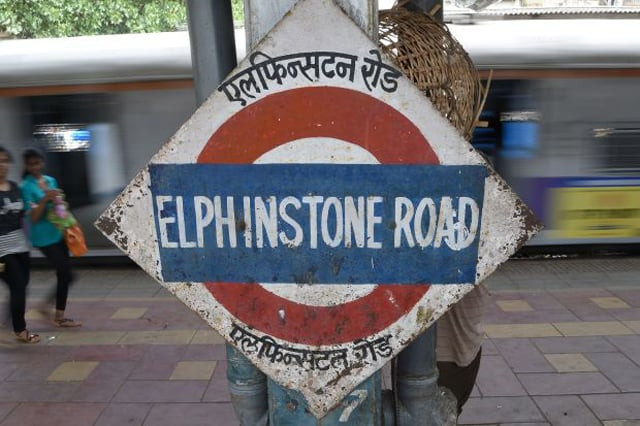Indian authorities are moving to strip Mumbai’s railway stations of their British names, an official said on Friday, as leaders seek to purge the city of remnants of its colonial past.
Elphinstone Road station – named after a British-era governor –officially became Prabhadevi station this week, named after a local Hindu deity, and ministers say more changes are in the works.
“We are working to rename railway stations as per locally known names instead of older names,” Diwakar Raote, transport minister for the Maharashtra state government, told AFP.
Raote is a member of Shiv Sena, a Hindu nationalist party which pushed through the renaming of India’s financial capital from the British name Bombay to the local Marathi name Mumbai in 1995.
What's in a name? Mumbai 20 years on from Bombay
It is currently the junior partner in a coalition with India’s ruling Bharatiya Janata Party in Maharashtra, of which Mumbai is the capital, and has long campaigned for colonial monikers to be scrapped.
In 1996 it was instrumental in changing the name of Mumbai’s main railway station, built in the 1880s, from Victoria Terminus to Chhatrapati Shivaji Terminus after a 17th century Hindu warrior king.
Lord Elphinstone was the Governor of Bombay Presidency from 1853 to 1860 and after the station named for him was changed on Tuesday a Shiv Sena MP said he had other stations in his sights.
“I have demanded that Currey Road station be named Lalbaugh; Sandhurst Road station as Dongri; Reay Road as Ghodapdeo; Cotton Green as Kalachowki; Mumbai Central as Nana Chowk; Grant Road as Gaondevi; etc,” the Press Trust of India news agency quoted politician Arvind Sawant as saying.
Name changes and manufactured identities
Critics say the name changes are a cynical ploy to appeal to the local Maratha community which make up the bulk of Shiva Sena’s support base. Meanwhile, historians lament any attempt to eradicate the city’s history.
“(Name changes) are an erasure of our city’s past. Every historic milestone in the city’s development is being whitewashed as those undertaking these renaming exercises don’t see the nuances of these names,” historian Sifra Lentin said.




















COMMENTS
Comments are moderated and generally will be posted if they are on-topic and not abusive.
For more information, please see our Comments FAQ